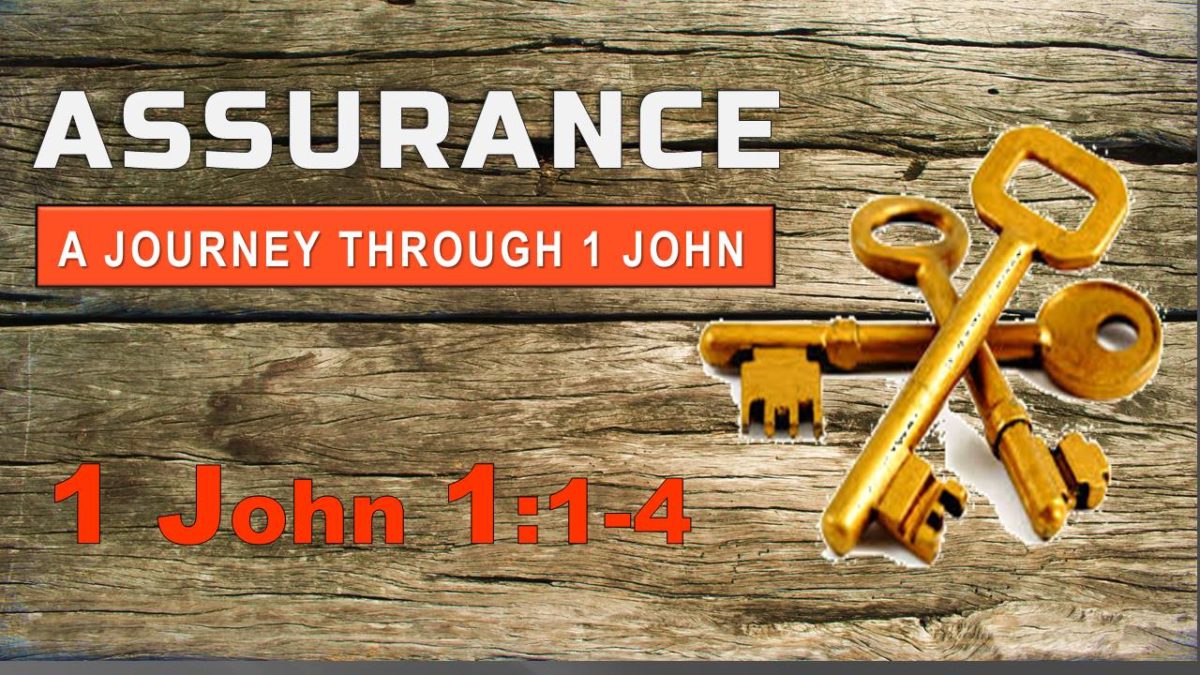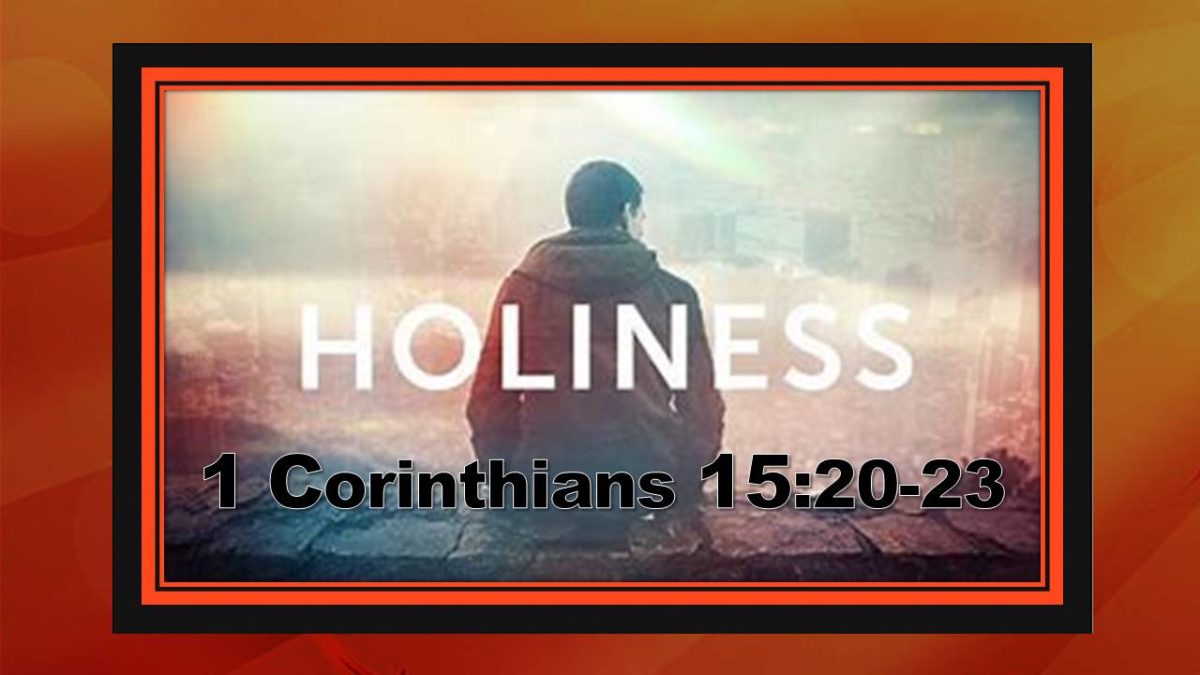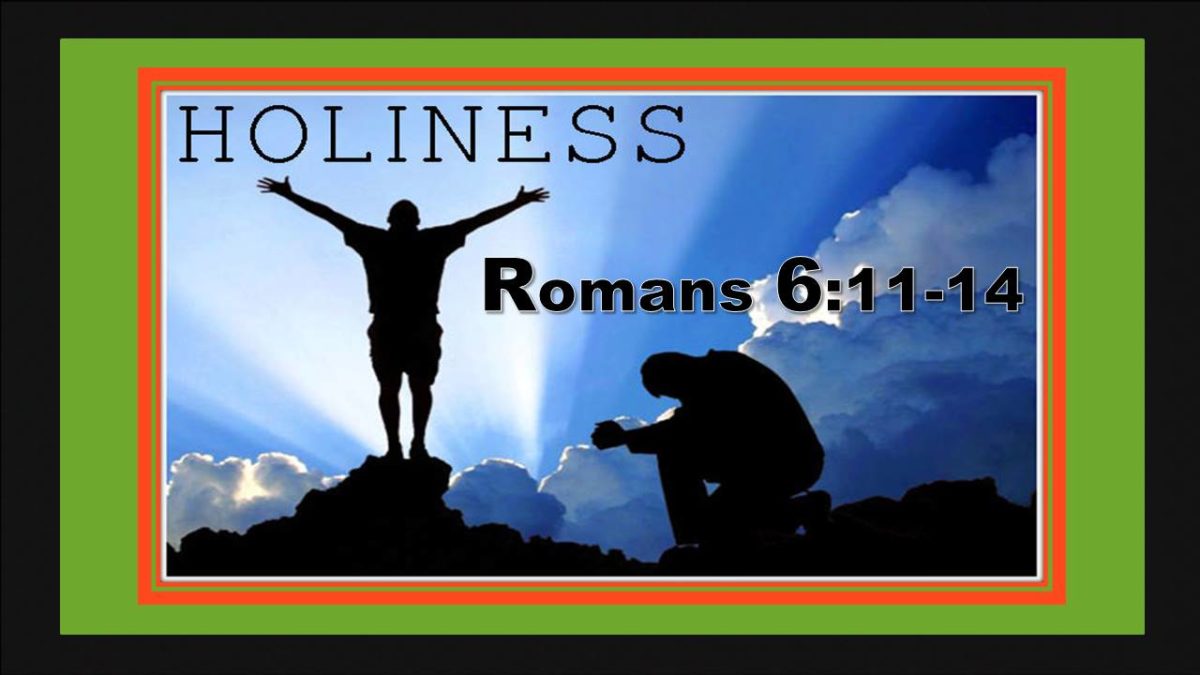Recently, I listened to the Packers play the Vikings. Great game! Five full quarters, and it came down to one, chip-shot field goal by the Viking’s rookie kicker. Do you know what he did? He shanked it!
After the game the poor guy explained why. By his own admission, he lacked confidence. Lacked assurance.
When we lack assurance in the Christian life, we shank it. That’s why Old John the Apostle wrote the letter we call 1 John. He wrote to churches he oversaw in Asia Minor (present-day Turkey) to remind them of the assurance they can have that they belong to God.
In the first four verses of John’s heart-warming letter we learn that assurance is all about right gospel fellowship, with God and with other believers.
Proof of fellowship with God and other believers (:1-2). For John, fellowship with God is about something he calls “the word of life”. Proof of fellowship includes sensory knowledge of the “word of life”: we’ve heard the word, we’ve seen the word with our eyes, we’ve looked at the word and our hands have touched the word. This “word” existed before the beginning of all things. And, God has made manifest the “word of life”.
Do you get the feeling that the “word of life” isn’t a thing, but a person? You’d be right to feel that. John is talking about the fellowship of those who knew the Lord Jesus in this life. His Greek-speaking churches in the late 1st century needed to remember that God had revealed Himself in the man named Jesus who is the Christ. Jesus is 100% man, totally human, flesh-and-blood. No use searching beyond Jesus for some logos or ordering principle of the universe beyond Jesus. Know Jesus and you know God revealed.
But, it might have ended there. Why is the fellowship of those who belong to God not limited to those who walked with Jesus in this life?
Proclamation of fellowship in the Gospel message about Jesus (:3). … That which we have seen and heard we proclaim ALSO to you (:3a). In the key verse of the prologue to John’s letter we now see a shift from Jesus the word to the gospel as the word. John is widening the fellowship of those who are in fellowship with God to those who hear and believe the good news about Jesus! Why? … so that you may have fellowship with us; and indeed our fellowship is with the Father and with his Son Jesus Christ.
“Fellowship” involves both personal relationship and common purpose. Through the gospel message we’re included in this fellowship of those who know Jesus! Through the gospel message we’re included with the Father and His Son Jesus. And that’s good news for us today!
Purpose of proclaiming fellowship in the gospel message about Jesus (:4). And we are writing these things so that our joy may be complete. John’s purpose will be accomplished through his writing. John’s purpose will make his “joy complete”.
This is a great reason to read John’s first epistle. John is the apostle of the heart. He’s going to show us how to be in fellowship with God and—through tests we can give to ourselves—to prove to ourselves that we are in fellowship with God and those who, likewise, love God. And that means assurance.
Fellowship with God and other believers takes place through the gospel message about Jesus the Christ.
Here’s a couple of questions to consider as we prepare for the rest of John’s letter:
We’re going to find out in the weeks to come that the false teachers in John’s churches got the gospel message about Jesus wrong. What happens if we get the gospel message about Jesus wrong? Is it still good news? Does it still bring about fellowship?
How would you define “the gospel”? What about Jesus do you have to know and believe to be in fellowship with God?
How can we be sure that we’re in this fellowship of those who rely and believe in Jesus?
Look at the following references: John 15.11; 16.24; and 17.13. From whom do you think John got the idea of “complete joy”?




